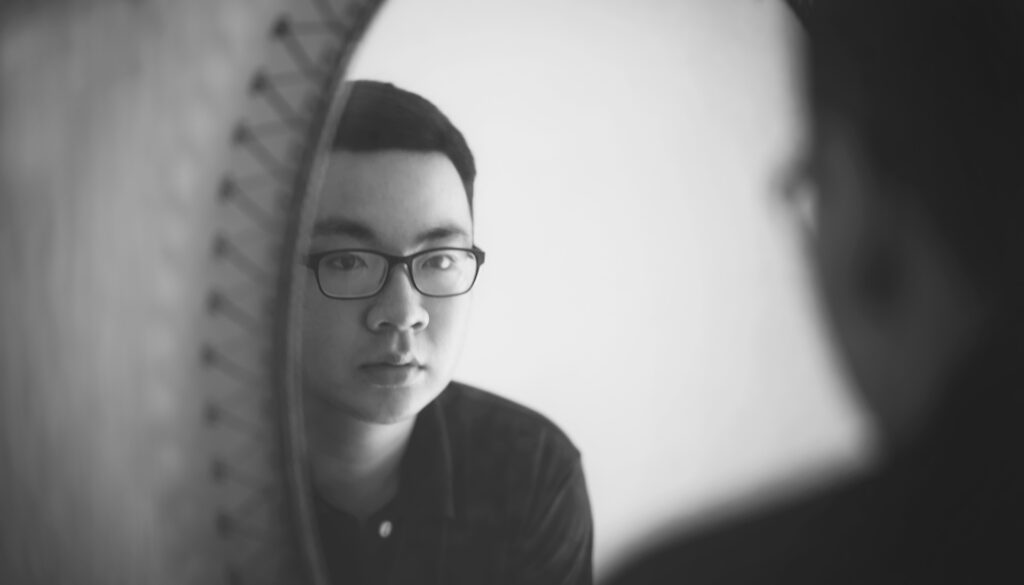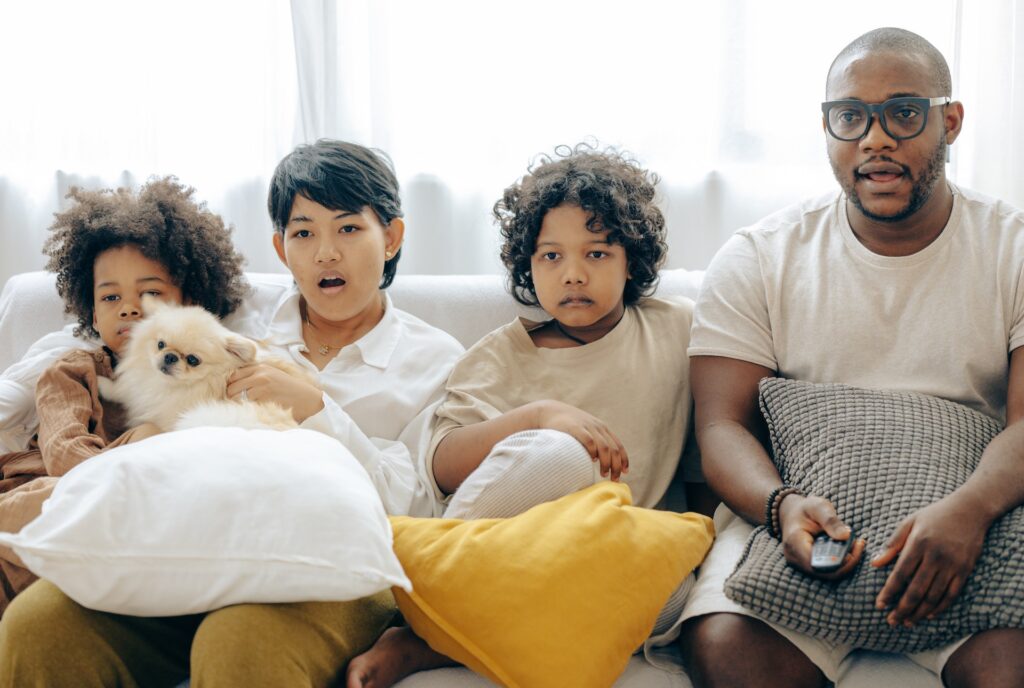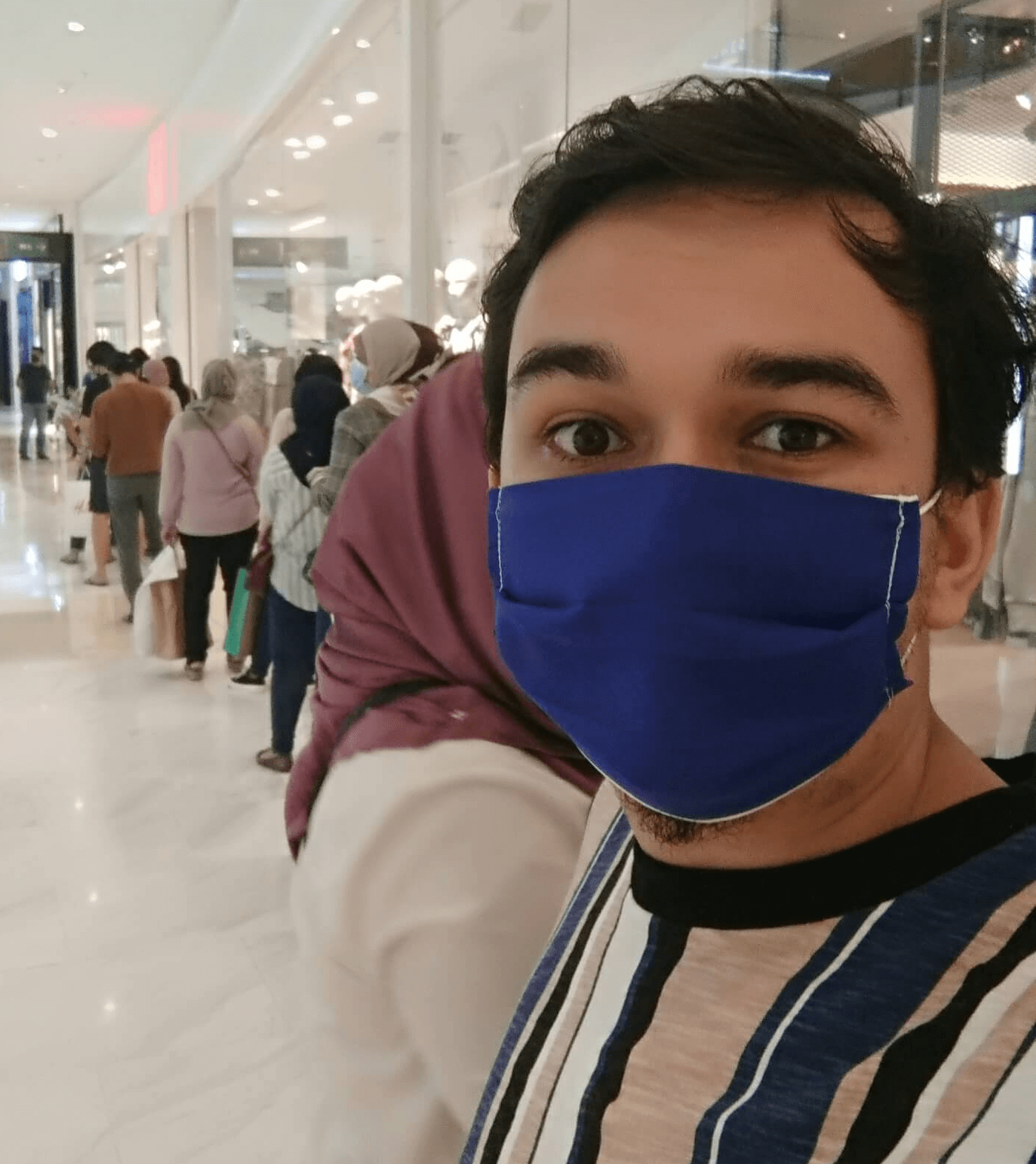To accept one’s identity, they need to first understand it.
Forever the anomaly. Always something to talk about. Often out of place. And rarely understood.
I wonder if anyone else can relate. Growing up in your own little bubble there’s no real question about your identity. About who you are. You are you. Born of 2 parents. It might be very clear to see that your hair is the same as your mother’s. While your eyes are like dad’s. Same thing if you have siblings. Within your small circle, who you are makes sense. It’s when we go out into the wide open world, where things become less clear. We are asked, again, to reevaluate our identity. To relearn who we are in a constantly shifting environment of different contexts.
It’s here, when you start to understand who you are. In the school yard, lecture halls, or the office place.
For the longest time your identity was just being part of a larger group. But on further examination, you notice that everyone has their own little, unique quirks. You also begin to read other peoples’ reactions to you as well; and they can vary widely. Are you accepted at face value; for who you are? Or is the way you look, the beginning of a long, unwanted interview?
Growing up as a child with mixed ethnicity was interesting. When I was younger, I may not have had the abilities to understand what was being said at or around me. And for most of my high school time I feel like I lived relatively judgement free. I was just that guy. And that was it.
As I got older though, I noticed that people were more concerned with who I was. Where I was from. And all the different parts that made me who I was. Of course, there may have been many reasons for why I noticed this growing interest in my identity, later on in life.
Maybe children in school were taught to be polite. Perhaps you don’t have as much time to get to know people in your adult life; you want to know as much about someone quickly. And of course, I may have played a different role in the story of someone else. For my friends in our nascent teenage circle, I was just their friend. But for others, I could be a first contact, a first-time meeting someone from a curious country or background.
Either way, I’d love to speak about some of my experiences of being from a mixed heritage and I wonder how many of these people can relate to.
First Impressions Matter

As much as one’s shoes, hair, or state of attire stick out to someone. So too, does the way we look. Our features or complexion, are equally up for grabs when it comes to first impressions. All depending on the nature of the eye that beholds us, these innate features of ours are open to be judged just like the physical affects we bought and chose on our own.
Reactions to simple things and core elements of your identity can be a little tricky, growing up with mixed heritages.
Are you living in a largely English-speaking community, with a very non-English name? Does it make you or your cultures feel ‘foreign’? You may be stopped; comments on your name may ensue, as well as repetitive exercises to make sure people get the pronunciation right, and even the dreaded “can I call you something else?” question.
Born to an Australian father, and a Malaysian mother. Bearing a name from neither culture. It took me a long time to learn that not everyone said my name the same way. And that it would take me quite some time, myself, to learn it’s proper pronunciation. My friends, colleagues, and the way they pronounce my name too has changed in line with my own learning and discovery.
Looks can be a bit tricky, as there is no one stereotype to fit all people of mixed ethnicity. There’s no real combination chart, when it comes to who takes what physical traits from which parent. There is no limited set of combinations from this menu.
We aren’t like the simple 4×4 Punnet squares we all studied in genetics 101.
One of the things I experience a lot, is people cannot always tell what country I’m from… at least straight away.
It can be fun sometimes, while other times tedious. How you look, or rather should look, to someone else is often based off their own experiences and expectations.
Fitting someone else’s definition

Remember when I said people often get my background wrong? The second most popular reaction I get is somewhat of a back-track. A cover-up of one’s initial mistakes.
“You look sort of Spanish…”
“Well actually my mother is Malaysian and my father…”
“Oh yes, of course. I see it now, your hair/nose/eyes are very Malaysian.”
You see it now? After I told you? Would my features look so Malaysian if I hadn’t told you that’s where half of my genetics come from? Like a puzzle slowly coming together in front of their eyes, things suddenly start to make sense. The curious brow, or cheek line, are now completely understandable. Hindsight really is 20/20.
Trying to make sense of the world, of things, and of people, isn’t necessarily bad. We all need to do it.
It’s important to take pieces we are familiar with, and create meaning that makes sense to us. But it just feels a bit forced when people try and point out the reason for your background and ethnicity, in your features, especially after it’s been revealed to them.
These reactions can be quite telling. What does it mean to you, for someone to be Australian? Or English? Or Asian? After all, many (but not all) nationalities are made up of many ethnicities. While some ethnicities are yet to have their own nationality. Am I saying ethnicity, while you’re hearing nationality? And vice versa. Humans are complex beings, and sometimes stereotypes can help in making sense of such complex ideas. Yet other times it makes us feel less than we are. Broken down, and simplified for wider understanding.
As I’ve been writing and letting this piece linger in my drafts, I thought about these 2 sentences. And I feel like they are still currently the most adequate way to sum up my identity. Perhaps as I get older, and collect more experiences this may change…
It’s likely that you will be misunderstood. And rare that others will completely understand you.
Moving around a lot, migrating, especially as a child, can help with some of this. From the beginning you are exposed to stories that are different from your own. Although it may not completely alleviate all the issues here; migration can often help teach empathy. If you’d like to read an article I wrote for a magazine about the same topic. Follow the link here.
Even though I am a being made of flesh and bones. I’m as real as can be. I will still be interpreted via the lens of someone else. And someone else’s lens will never pick up the true me. I need to be simplified, or exaggerated. If they were to cast their mirror back at me, I would say; ‘that’s not me!’. Our lives, like our lenses, aren’t the same; because we were brought up on different things. We view things differently and we need things to make sense according to our own set of values.
People love to imagine us

What does being mixed represent? For me? For my parents? No, what does it represent for others around me?
For a lot of people the idea of having mixed children is almost trendy. To some people it symbolizes various racial barriers breaking down. It represents a harmony and coming together of various cultures.
And of course it also is the result of the parents, who must’ve gone on their own journeys of discovery and learning. These journeys couldn’t always have been easy, and they would’ve been fraught with communication and cultural foibles. The mixed children therefore, are a result or positive outcome of these hard-won lessons.
I recently wrote an article about issues multilingual couples might face; check that out here, if you want a different angle on this idea!
Why I’m not 100% of both of my cultures.

So people often have an expectation of you because you have a mixed heritage. They expect you to represent an identity or values that they themselves want to see. However, we are also judged on both sides of our upbringing and how people interpret these aspects.
People often acknowledge in theory that, identity is unique. Regardless of our mixed heritage. Naturally this might mean one is more prominent than the other.
It is just hard to be 100% of two different things. It doesn’t even make sense as I write it here. However, it is harder to accept this in reality than in theory for many people.
A friend of mine whose parents were Dutch and Moroccan often got questions about their heritage. And we often give people the benefit of the doubt, perhaps they are just curious. However sometimes what others think as a harmless question can be at best annoying and at worse presumptuous and offensive
Are you more Moroccan or more Dutch?
Why can you speak French and Dutch but not Arabic?
These questions may be important for you to have answered, and by a real person, not just a wiki page. However, people need to be aware of the time and effort of other people too.
I wrote about studying the language of your partner here, and using them as a free teaching service. Just like it is not necessarily the right of someone to teach you their language, they are also not beholden to answer all your questions (geographic, historic, political) about their various upbringings and origins.
There are many reasons why someone may only speak one language from their mixed heritage, not eat specific foods, or not behave in ways that you expect them too. Upbringing and social context are just as important to one’s identity as cultural and geographic factors. They may be willing to share this with you as well, but it’s better to truly develop a relationship with this person and value them; rather than treat them as a means to getting your questions answered.
But if I actually have to spend time with another person, develop a relationship with them, before asking them personal questions; that might be harder, and take longer than I originally thought?
Well, yes.
A fish perennially out of water. The forever anomaly.

Just like a fish swimming upstream, in search of warmer water. I have both moved with the shoal and swam against the current. And now, through some circumstance, I find I have jumped too high and landed out of water. It’s a confusing place to be in, and I run out of air constantly. I have become used to this though. Being the fish perennially out of the water. Always the one responding to the questions of others, but never being able to find the answers to my own. I am happy being the saltwater fish in the river. The one where people say, “how did he get this far?”. It strengthens my own identity and my own ideals. I am happy being the forever anomaly.
A lot of the time we don’t really make sense to people. We have a story behind us, but it is often complex and multi-layered. And we’ve realized that not everyone has the time nor patience to hear out the entire story.
They’re sort of just here to see how our tales can reinforce their own beliefs. So we’ve learnt to tell a shorter, abridged story. One without the all the details. We’ve removed some of the sadder, or scarier parts of the story. And we reserve those chapters that really make you think for those who we know will read them. Sparknotes for those in a rush, and the unedited, unfiltered, messy drafts for the true fans.
Our story only needs to make sense to one person first; and that’s ourselves. Once we reach that point, we can tell our stories comfortably and confidently; regardless of who hears it or how it’s interpreted.




